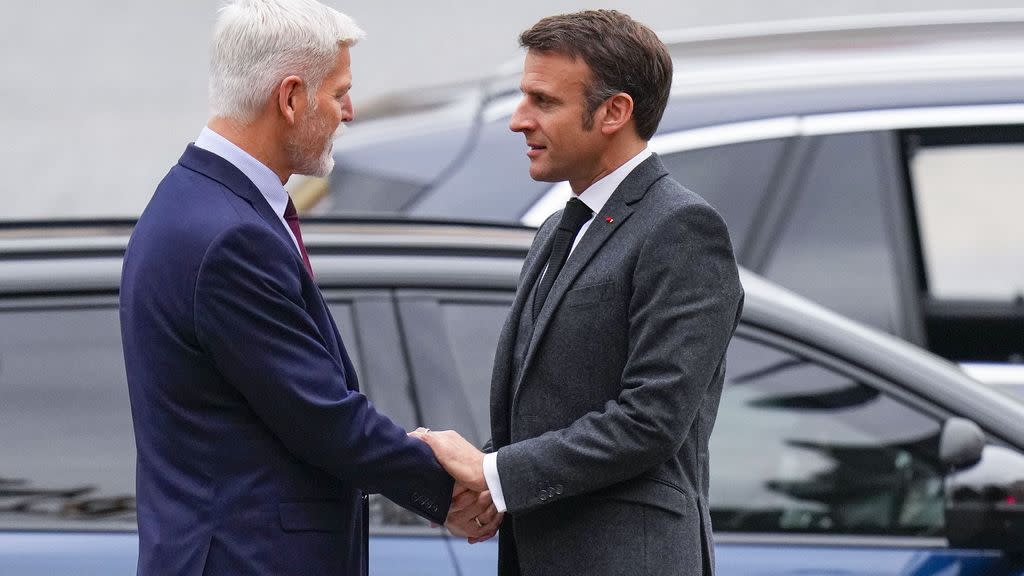Czech and French leaders pledge support for Ukraine

The Czech and French presidents said Tuesday their countries remain united in their support of Ukraine's fight against Russian aggression and are ready to look for new ways of helping the Ukrainians succeed.
“We agree that the only option for us is to continue supporting Ukraine,” Czech President Petr Pavel said. “We’ve agreed that Europe has to play a bigger role in helping Ukraine.”
Pavel said that all options had to be considered but ruled out deploying combat troops in Ukraine, an idea French President Emmanuel Macron floated last week, prompting an outcry from other European leaders. Later, French officials sought to clarify Macron’s remarks and tamp down criticism while insisting on the need to send a clear signal to Russia that it cannot win in Ukraine.
“We haven’t talked about it at all,” Pavel said. “We’re talking about various forms of assistance.” He suggested the training of Ukrainian soldiers may take place in their home country despite the ongoing conflict.
“Russia must not win the war,” Macron said in Prague. “We must all be aware that this war affects us all.”
He said European nations cannot put constraints on themselves when Russia has no limits, including threatening the use of nuclear weapons.
“It’s a strategic leap that I called for and that I fully embrace,” Macron said. "We must be rational about the reality of the situation playing out in Europe.”
“I am convinced that the clarity of these words is precisely what Europe needed,” he said. “Ask President (Vladimir) Putin what he is prepared not to do. Who started the war in Ukraine? Vladimir Putin, who threatens whatever we do, whatever we say, with nuclear weapons."
The Kremlin has warned that if NATO sends combat troops, a direct conflict between the alliance and Russia would be inevitable.
Last month, Pavel announced at a security conference in Munich that the Czechs had identified 800,000 pieces of artillery ammunition in various countries and were seeking funding for their acquisition to ship to Ukraine. Macron welcomed the Czech plan to acquire the ammunition Ukraine badly needed.
About 15 countries, including Britain, Belgium Denmark, Canada, Sweden and the Netherlands, have voiced their support for the plan, the Czech government said.
Later Tuesday, Macron and Czech Prime Minister Petr Fiala signed a French-Czech action plan for a long-term strategic partnership that should further boost cooperation in nuclear energy among other fields, including defense, transport, science and culture.
Unlike some other European countries, the Czech Republic and France both heavily rely on nuclear energy.
The Czech government is currently seeking to build up to four nuclear reactors and France’s state nuclear giant EDF and Korea’s KHNP are the two contenders bidding for the project. They have to submit their final bids by the middle of April with a contract to be signed on the turn of 2024-25.
The first new reactor, located at the Dukovany nuclear power station, is set to be operational by 2036.
During Macron’s visit, the main majority-state-owned Czech power company, CEZ, signed a contract with France’s Orano for its uranium enrichment needs in an effort to eliminate the country’s dependence on Russia. Under this deal, the uranium supplied will be transformed into fuel to be used in the Dukovany plant.
Orano already provides the same services for the country’s other Temelin nuclear plant.
Another French company, Framatome, was selected in 2022, together with U.S. Westinghouse Electric Co., to deliver fuel supplies for Temelin.


